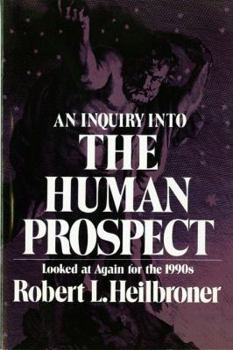An Inquiry into the Human Prospect
Select Format
Select Condition 
Book Overview
In this third edition of a book that has become a classic, Professor Heilbroner leaves the question in place on the first page, believing some twenty years later that that interrogative sounds the themes of the 1990s as well. The main components of the global predicament he described in the first edition are still with us today: runaway populations, obliterative weaponry, and a closing environmental vise.
Writing now, in the aftermath of the extraordinary events that caused communism as a challenger to capitalism to vanish "like a puff of smoke," Professor Heilbroner traces out the difficulties that beset those attempting centrally planned economics. He shows how Soviet-style systems became mired in bureaucratic swamps. But he warns that the triumph of profit-driven, market-directed economies will not delay the looming encounter with the ecological barrier. "The absorption capacities of the environment," writes Professor Heilbroner, "whether in terms of the greenhouse effect or the overrunning of other physico-chemical capabilities of the planet" still determine the limits of the economic expansion.
Trenchant and unflinching, Professor Heilbroner's look at the sum and substance of our prospects for the remaining years of this century is provocative and indispensable reading for those who prefer not to avert their gaze from the hard realities of our times.






